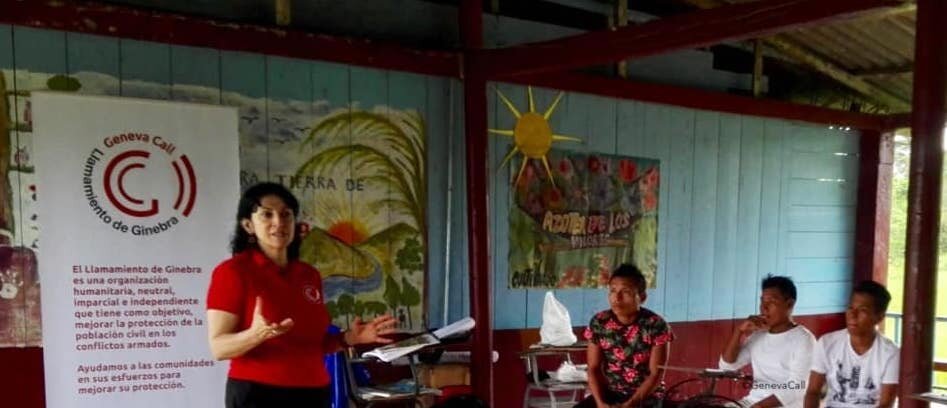
Project Partners & Supporting Organisations
The Generating Research Project is co-productive. Our partners and supporting organisations have provided input in the project’s design and are actively involved in its implementation through conceptual, institutional and operational support.
“The findings of the Generating Respect Project could provide a blueprint for engagement with religious leaders to enhance compliance of the parties to an armed conflict with core humanitarian norms, which may result in new, complementary strategies of humanitarian engagement.”
Catherine Hilzer
Head of Africa Region, Geneva Call
Geneva Call, a project partner of the Generating Respect Project, is one of the world’s leading organizations in the field of humanitarian engagement with armed non-state actors (ANSAs). A neutral, impartial and independent humanitarian organization working to improve the protection of civilians in armed conflict, Geneva Call has engaged in humanitarian dialogue with more than 120 ANSAs worldwide since its establishment in 2000.
The key tool of engagement that Geneva Call uses is an innovative instrument known as the Deed of Commitment, which allows ANSAs to undertake to abide by specific humanitarian norms and to be held accountable. More than half of the engaged ANSAs have signed one or several deeds of commitment. A number of other ANSAs have taken steps to bring their policies and behaviour into line with international standards. Geneva Call monitors and supports the implementation of these humanitarian commitments. This unique approach has been recognised as a successful model of engagement by the UN Secretary-General in his reports on the protection of civilians in armed conflict.
The close partnership between the Generating Respect Project and Geneva Call provides us with novel opportunities to achieve positive impact for communities in conflict-affected contexts.
Read more about Geneva Call’s work on their website.
Hosted by the Ralph Bunche Institute, located at the Graduate Center, City University of New York, the Project for Freedom of Religion or Belief (RBI-FoRB Unit) was established in 2016 to provide technical assistance to the United Nations Special Rapporteur on freedom of religion or belief, Ahmed Shaheed.
The Special Rapporteur was appointed on 1 November 2016 by the United Nations Human Rights Council to identify existing and emerging obstacles to the enjoyment of the right to freedom of religion or belief and present recommendations on ways and means to overcome such obstacles.1
To this effect, the RBI-FoRB Unit works in close partnership with academic institutions, international human rights organizations and government actors to develop and undertake research and advocacy initiatives that:
(1) explore poorly understood thematic issues;
(2) monitor, document and report on instances of violations of the right to freedom of religion or belief and
(3) promote the implementation of recommendations offered by the Special Rapporteur for improving respect for freedom of religion or belief in various country contexts.
Follow the work of the United Nations Special Rapporteur on freedom of religion or belief on the OHCHR website and Twitter.
The Diakonia International Humanitarian Law Centre was founded to promote respect for the laws of war and to increase the protection of people in conflict zones worldwide. Through research, capacity building, and advocacy, the Centre raises awareness and knowledge about international humanitarian law (IHL) to create lasting behaviour change.
The Centre engages with humanitarian organisations, governments and state armed forces, armed groups, civil society, and other stakeholders around the world, including religious actors. It is a global legal centre with strong regional expertise and local presences in Bamako, Beirut, and Jerusalem. A team working on global policies and responding to emergencies worldwide as well as the Centre’s secretariat is based in Stockholm.
The Centre supports the activities of the Generating Respect Project.
“[The Generating Research Project] is a very timely research of crucial importance for the scholarship and practice of humanitarian law, and we look forward to participating in the projects’ activities and contributing to its findings and outputs.”
Professor Emiliano J. Buis
Academic Director, Observatory on International Humanitarian Law
The Observatory on International Humanitarian Law at the School of Law of the University of Buenos Aires was created with the aim to foster the development of academic, research and technical assistance activities on International Humanitarian Law (IHL) and advance reflection on current issues concerning the application of this branch of law. It develops collaborations with public and private entities whose aims are related to the goal of the Observatory.
Read more about the work of the Observatory on International Humanitarian Law.





